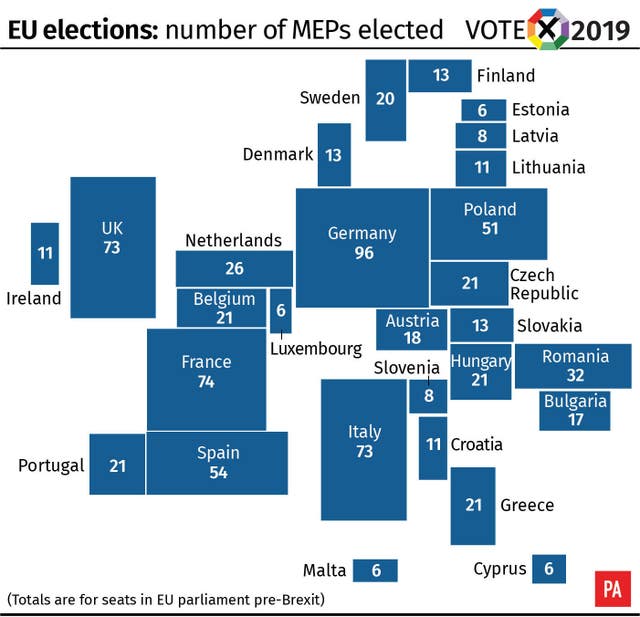UK to send MEPs to European Parliament – but for how long?
The UK will elect 73 MEPs on May 23, but they could only serve for a few months instead of the usual five years

Almost three years after voting to leave the European Union, Britons will go to the polls to elect new MEPs after Brexit was delayed.
Why is the vote happening?
Theresa May had hoped that taking part in the contest could be avoided, with the UK’s departure from the European Union concluded before the May 23 vote.
But because of her failure to get the Withdrawal Agreement approved by MPs at Westminster, the UK remains a member of the EU and has to take part in the elections to the European Parliament.
Will MEPs take their seats?
The new European Parliament will assemble on July 2 and with no prospect of the Brexit process being completed by then the UK’s MEPs will have the same status as all other members.
How long will they stay MEPs?
They will be elected on the same five-year cycle as MEPs from other countries, but their membership will cease as soon as the UK leaves the EU.
The current deadline is October 31, the date the extension to Article 50 expires, but this could be delayed further if the other 27 EU countries agree.
If the Prime Minister succeeds in getting her Withdrawal Agreement Bill through Parliament, the UK could potentially leave the EU on August 1, under the terms of the extension if the UK and EU ratify the Withdrawal Agreement before October 31, then Brexit would happen on the first day of the following month.

What about the rest of the EU?
The size of the European Parliament was due to be cut from 751 seats to 705 with the UK’s exit.
Twenty-seven of the seats formerly reserved for the UK will be redistributed among 14 other countries once Brexit occurs.
Politicians elected for these reallocated seats will in limbo – unable to take up their place until the UK and its MEPs leave.
Are there any other impacts?
The make-up of the European Parliament has a knock-on effect on the allocation of some of Brussels’ top jobs.
One of the first tasks of UK MEPs will be to vote on Jean-Claude Juncker’s replacement as the next European Commission president.
The member states nominate a candidate for the post, but in doing so they must take account of the European election results, and the appointment needs approval by a majority in the parliament.
Candidates for the remaining commission portfolios have to go through a tough parliamentary vetting process too.





